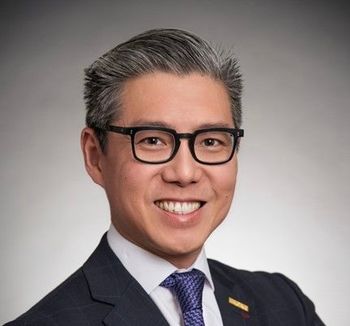
To address the labor shortage, the healthcare industry must tap into overlooked talent | Viewpoint
Intentionally designed programs can remove barriers and help organizations win talent.
The healthcare industry’s need for workers has hit a critical level — and one way out of it is by removing barriers to entering the field and strengthening career pathways.
The numbers are stark: The U.S. Bureau of Labor Statistics estimates that employment in the sector is projected to grow 16% by 2030 — a higher percentage than any other occupational group.
Between now and 2030,
At the same time,
That pace is unsustainable.
Communities already feel the fallout. If this issue goes unaddressed, it will have profound ripple effects on patient care. The healthcare industry must take swift action to remove barriers to entering the field and build career pathways with intentionality. With this approach, the growing needs of the industry can be met by people who are capable and eager to join the field.
By investing in internal talent pipelines, companies can mobilize the careers of those in their communities and promote economic opportunity and equity.
We’ve all seen examples of what can happen if our industry doesn’t adapt: Health systems are
At UCHealth, we’re committed to tackling the healthcare talent shortage while positively impacting individuals. That means strengthening our workforce in specific ways, including eliminating high school completion requirements for certain roles, building a new program promoting education, and offering ample opportunity for career development.
We believe our path is one model for a way out of the industry’s labor issue.
Expanding the hiring pool while focusing on community development
For some entry-level roles in the healthcare field, a minimum requirement, like a high school diploma, is restrictive and discriminatory. More than
The value of education is undeniable and can empower individuals. Companies can support their workforce, though — that’s why a high school diploma or GED is no longer required for certain roles at UCHealth. We now fund this foundational education once employees are hired.
We must explore all options when it comes to talent. Small changes create a wider, more diverse range of applicants. The status quo is unacceptable.
Educate and skill with intentional inclusivity
Healthcare companies have a long history of investing in employees' education. Yet, organizations struggle to develop and retain talent at the required pace.
If we want a more enduring, flexible, and diverse workforce, the old ways of doing things won’t work.
Companies must be more strategic — adopting approaches that create career pathways and make mobility accessible for all.
UCHealth pledged up to $50 million over the next four years to these efforts. That investment includes foundational learning programs, including high school completion, English language learning, and college prep. It also funds a selection of clinical certifications and advanced degrees and pays tuition upfront rather than reimbursing learners later. The program, in partnership with Guild, ensures that all employees can take advantage.
In addition to eliminating barriers, our program doesn’t have any tenure eligibility requirement — workers are eligible on day one of employment.
Career pathways to support business and individual needs
Two of the biggest challenges healthcare companies face are small talent pools and high turnover rates. One of the most common reasons workers leave is a lack of opportunity — 63% of participants in a March 2022
It’s crucial for organizations to integrate ample opportunities for growth and development.
This means identifying high-demand roles and equipping internal talent — through learning and education — with skills they need to succeed.
UCHealth funds select degree programs in social work and behavioral health, and other areas of study to support critical staffing needs. By advancing our workforce’s growth and development into these roles, we’ll help address vital needs.
Employees, in turn, are able to access sustainable jobs, supporting their families and communities.
A culture of change
The pandemic pushed the endurance of healthcare workers. However, they’ve remained steadfast while delivering patient care.
Now is the time for employers to double down to support their invaluable, diverse workforce.
We must also address the industry’s labor issue, threatening to render local communities even more vulnerable to the next public health emergency.
Investing in skilling and career growth of employees — especially from those in talent pools that have been historically overlooked — is one vital way to support both goals. We must remove barriers and make education more accessible and equitable, charting a tenable career path for workers.
By putting resources into our own workforce, we can sustain our mission of improving the lives of our staff, our patients, and our communities.
David Mafe is the chief diversity officer at UCHealth of Aurora, Colo., and Hanna Patterson is senior vice president, healthcare and applied learning at Guild, which partners with companies on education and career opportunity programs.








































